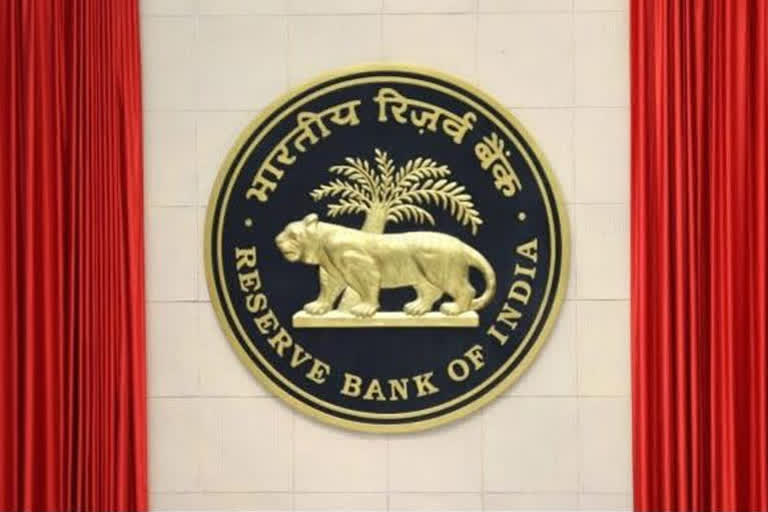Mumbai: The Reserve Bank on Thursday came out with a discussion paper to improve governance in commercial banks by adequately empowering their boards to effectively deal with issues like risk management, conflict of interest and supervisory oversight of senior staff.
Among other things, the discussion paper bats for greater power to the bank boards, separation of ownership from management and setting up of proper risk management strategy.
"The objective of the discussion paper is to align the current regulatory framework with global best practices while being mindful of the context of domestic financial system," the RBI said.
Stakeholders can send their comments on the discussion paper by July 15, 2020.
The paper said that growing size and complexity of India's financial system underscores the significance of strengthening governance standards in banks.
Recent events in a dynamic and rapidly evolving financial landscape have led to increasing scrutiny of the role of promoter(s), major shareholder(s) and senior management vis-a-vis the role of a board.
"In the context where management plays the role of an agent of a board and the board in turn plays the role of an agent of shareholders, governance failures have brought to fore the impact of quality of governance on efficiency in allocation of resources, protection of depositors' interest as well as maintaining financial stability," it said.
Read more:Include telemedicine as part of claim settlement of policy: IRDAI to insurers
The bank board, as per the discussion paper, should set the culture and values of the organisation; recognise and mange conflict of interest; set the appetite for risk and manage risks within the appetite; and improve the supervisory oversight of senior management.
On the responsibilities of the board, the paper said, "A fundamental component of good governance is a culture of reinforcing appropriate norms for responsible and ethical behaviour."
"These norms are especially critical in terms of a bank's risk awareness, risk-taking behaviour and risk management. To promote a sound culture, the board shall reinforce the 'tone at the top'," it said.
It further said there should be a code of conduct or comparable policy which shall define acceptable and unacceptable behaviour.
The board should have a formal written 'conflicts of interest' policy and an objective compliance process to ensure implementation of the policy.
Also, "the board shall take an active role in defining the risk appetite, ensuring its alignment with the bank's strategic, capital, financial plans and compensation practices."
The board should approve an approach, oversee the implementation of key policies pertaining to the bank's capital adequacy assessment process including capital raising plans, liquidity plans, compliance policies/ obligations, and the internal control system, it said.
The paper also talks about the qualification and selection process of board members. It further said the board should constitute a Nomination and Remuneration Committee (NRC) made up of only non-executive directors (NEDs).
It also said the board of directors of a bank should comprise not less than six directors and not more than 15 directors with majority being independent directors.
The new guidelines shall come into effect within a period of six months after being placed on the website of the Reserve Bank or April 1, 2021, whichever is later.
RBI proposes 10 yrs cap on term of bank promoters functioning as CEO
The Reserve Bank of India also proposed to limit the term of a bank promoter to hold the position of a CEO or whole-time director.
According to the RBI paper, a promoter or major shareholder of a bank may continue as CEO or whole-time director for a maximum period of 10 years. After this term, they must shift back to professional management position.
The central bank also proposed that in the overall interest of good governance, a management functionary who is not a promoter or a major shareholder can be a whole-time director or CEO of a bank for 15 consecutive years.
Thereafter, the individual shall be eligible for re-appointment as whole-time director or CEO only after the expiration of three years.
During this three-year period, the individual shall not be appointed or associated with the bank in any capacity, either directly or indirectly, advisory or otherwise.
The discussion paper said that to build a robust culture of sound governance practice, professional management of banks and to adopt the principle of separating ownership from management, it is desirable to limit the tenure of the whole-time directors (WTD) and CEOs.
"Therefore, it is felt that 10 years is an adequate time limit for a promoter/major shareholder of a bank as WTD or CEO of the bank to stabilise its operations and to transition the managerial leadership to a professional management," it said.
It noted that the upper age limit for CEO and whole-time director of banks is 70 years. Beyond this, nobody can continue in the post. Within the overall limit of 70 years, an individual bank's board can prescribe, as an internal policy, a lower age limit for CEO and whole-time directors.
On the date of issuance of the guideline or directions on the matter by the Reserve Bank on the basis this discussion paper, banks with WTDs or CEO who have completed 10 or 15 years shall have two years or up to the expiry of the current tenure, whichever is later, to identify and appoint a successor, it said.
(With inputs from PTI and IANS)



